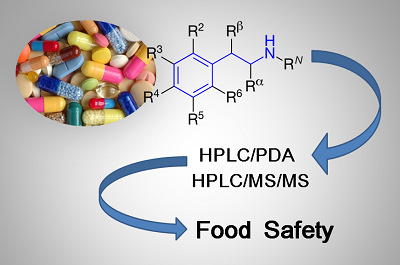
Yongwoo Shin
Gyeongin Regional Office of Food & Drug Safety, South Korea
Title: Simultaneous analysis of β-phenyl ethyl amine derivatives in food and dietary supplements
Biography
Biography: Yongwoo Shin
Abstract
PEA (β-phenyl ethyl amine) is a naturally occurring monoamine with psychoactive effects. Orally ingested PEA is primarily metabolized in the small intestine by monoamine oxidase (MAO) before it even reaches the brain. PEA is substituted with alkyl group to become more resistant against MAO. The most widely known alkylated form of PEA is amphetamine (α-methyl PEA) which is pharmaceutically used in the treatment of ADHD, narcolepsy and obesity. PEA derivatives are illegal to be included in food and dietary supplements since abuse intake of the drugs via food without medical prescription can cause life-threatening side effects. Governmental agencies of food and drug safety invest their efforts to screen out food and dietary supplements illegally containing PEA derivatives. We developed an accurate, simple, rapid and simultaneous analysis method of seven PEA derivatives in food and dietary supplements using liquid chromatography coupled with photodiode array detection (LC/PDA). The developed method was fully validated and showed good results with respect to specificity, linearity (r2>0.999), limit of detection (0.05 µg/mL), limit of quantification (0.20 µg/mL), precision (RSD<4.0%) and recovery (96-107%). It also satisfied all standards suggested by AOAC. To confirm the detected PEA derivatives, we also developed a qualitative analysis method by liquid chromatography coupled with tandem mass spectrometry (LC/MS/MS). LC/PDA and LC/MS/MS methods described in this study were simple, rapid and reliable; the methods may be suitable for a rapid and sensitive analysis of synephrine, oxilofrine, PEA, BMPEA, fenfluramine, phentermine and lorcaserin in food and dietary supplements.


